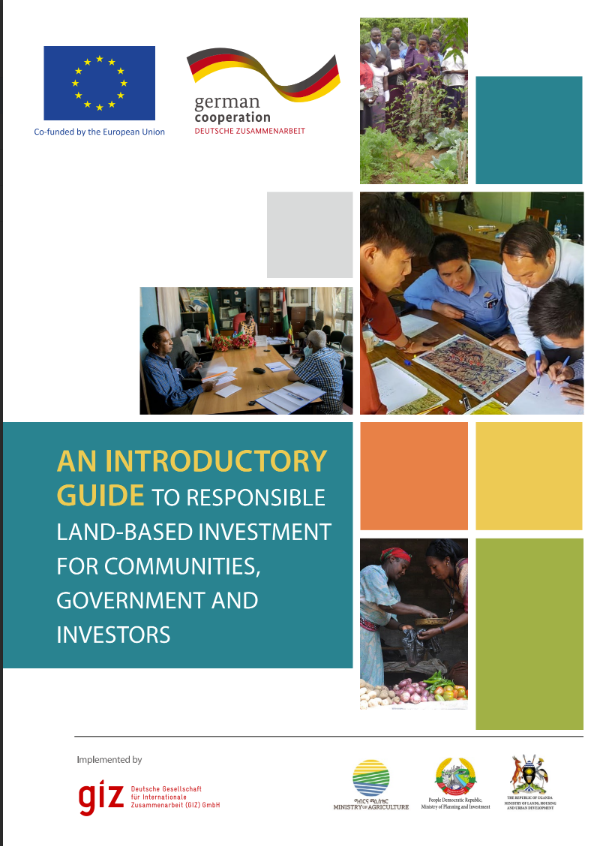Resource information
Significant land-based investments in agriculture and forestry are essential to meet growing global demand for food and to help counteract the likely impacts of climate change. Such investments can have a number of beneficial impacts, such as enhancing food security, generating foreign currency, improving natural resource manage-
ment, creating employment, sharing technology and contributing to overall sustainable development. Investment that supports small-scale producers, including efforts to increase their own capacity to invest, is particularly important (FAO 2015; WB 2017 Note 1).
However, not all land-based investments are equally beneficial,and some may have significant negative impacts on communties, workers and the environment. Thus, the stakes are high for all three primary actor groups — communities, governments and investors — in determining whether to support, approve or proceed with such investments. Deciding whether to support an investment on or near their land is one of the most important decisions a community can make. Government decisions on whether to facilitate and approve land-based investments have important implications for achieving sustainable development and fiscal objectives. And research shows that investors that fail to utilize responsible investment practices and thus harm communities incur much higher costs and a reduced likelihood of achieving a reason able return on their investment (ODI 2021).

